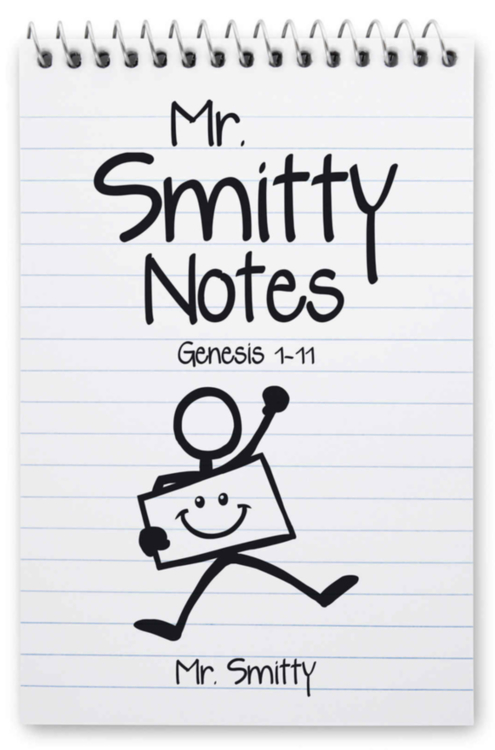
An older mentor writes to a boy named Sammy to explain why and how our views of morality and spirituality have changed since the founding of America, basing his case on the biblical creation story, in Mr. Smitty Notes: Genesis 1-11.
The author introduces this lively viewpoint by explaining to the reader that Mr. Smitty, the “author” of the narrative, would be someone with whom Sammy has “an important relationship,” expressing his concern for the boy’s future by acquainting him with elements of the past with which Sammy may not be entirely familiar. He reminds the reader that the United States had a Christian foundation, evidenced for example by the creation of Harvard College, with its original purpose to prepare students to become Christian ministers.
He quotes such notables as George Washington and Abraham Lincoln citing biblical principles. He emphasizes the fact that a facet of American religious life includes such well-known preachers as Billy Graham, who felt a calling to change minds and hearts based around an understanding of biblical authority.
He then moves his narrative to the Scopes trial, in which modern science came into conflict with biblical precepts, specifically, the doctrine of creationism versus the scientific assertions of Darwinism. To further underscore this treatise, Mr. Smitty launches into the bulk of this work: a lengthy explanation of God’s creation of mankind through a detailed examination of the first portion of the Old Testament in Genesis, Books 1-11. In this explication the author educates Sammy in the ways that God loved and created Adam and Eve, giving them his garden for their use, until the two choose to disobey one simple commandment. As Mr. Smitty tells his young student, “They had a choice. We have a choice. Freedom always allows us to choose.”
Each segment of the book is designed as a letter to Sammy, but importantly, all are couched in language and concepts suitable for adults, without speaking down to a young child at any time. The author clearly believes that science and, at times, the egoistic fixations of some American leaders such as Woodrow Wilson, led to the rejection of “timeless truths” such as are offered in the opening passage of the Declaration of Independence, in favor of political expediency. Here the book is more universal than much of the text which focuses on a Christian viewpoint, and so may speak to a larger variety of readers. The author points out that if people are truly allowed to decide for themselves, it may hinder the agenda of certain leaders.
The book will no doubt be appealing to a particular subset of readers, and the book doesn’t necessarily make its case to non-believers, but in terms of the ideas presented, the book is well-organized and original. For believers, the biblical stories cited will help renew faith, reminding readers of core tenets and values. Reading the story of early generations of humans as recorded in the Bible should be a strong reminder that when we try to go our own way, we fail. Mr. Smitty hopes that by carefully presenting the biblical facts, he will restore for Sammy some of the core truths that have been fading in our recent history, and this book will be duly inspiring to the right reader.
Overall, while Mr. Smitty’s Notes certainly has a particular audience in mind, it would make an excellent focus for study among committed religious seekers.
Book Links
STAR RATING
Design
Content
Editing
Get an Editorial Review | Get Amazon Sales & Reviews | Get Edited | Publish Your Book | Enter the SPR Book Awards | Other Marketing Services






















Leave A Comment